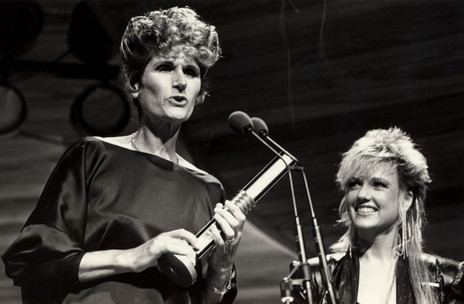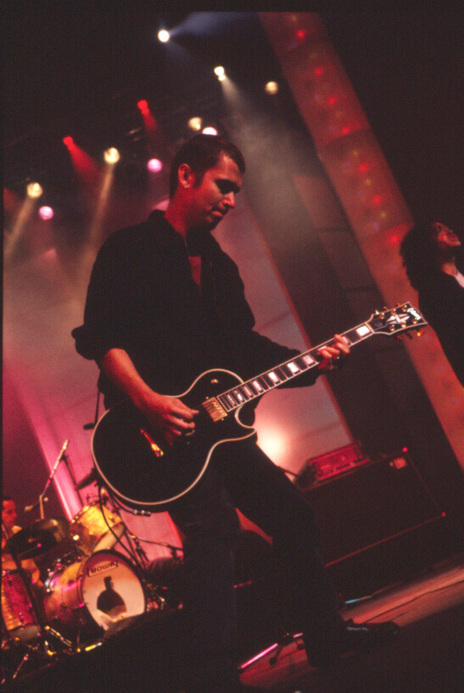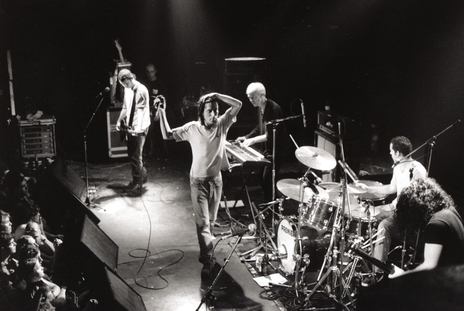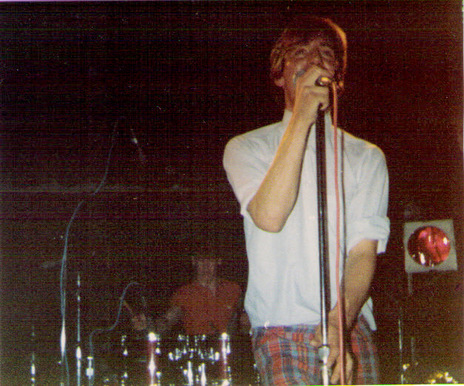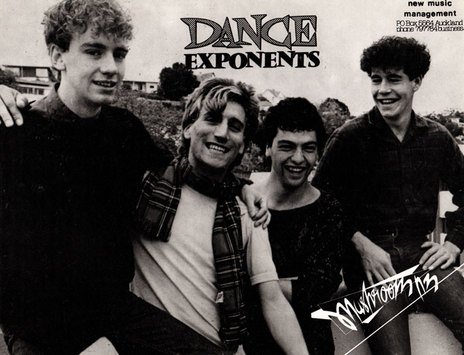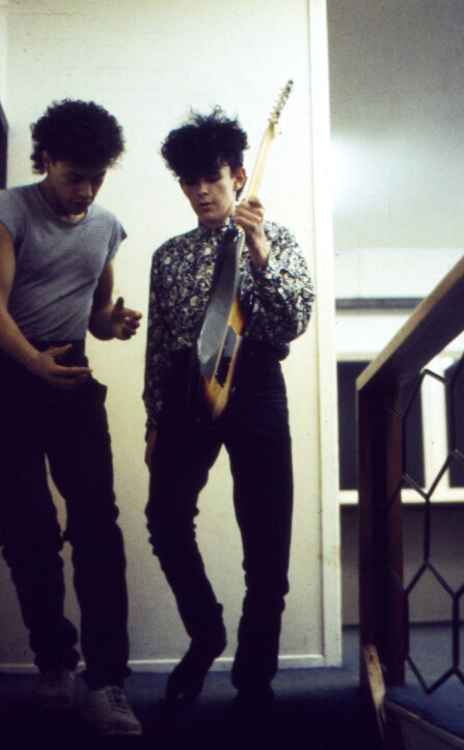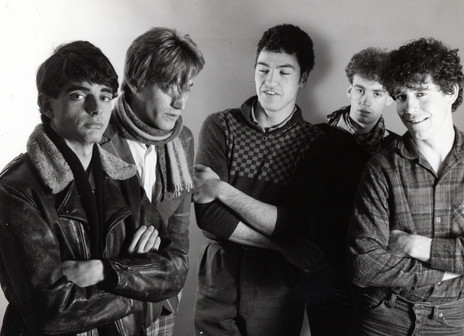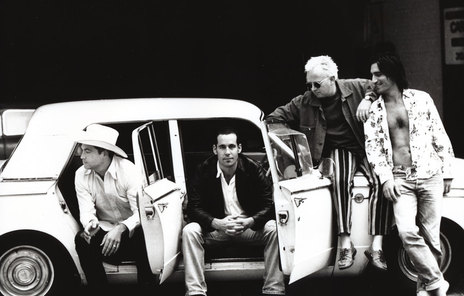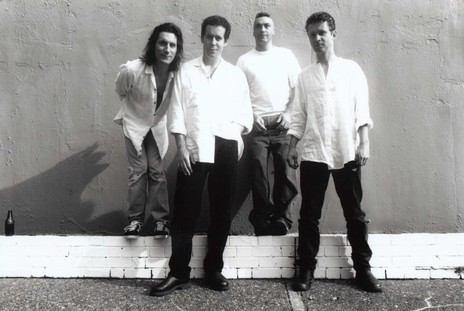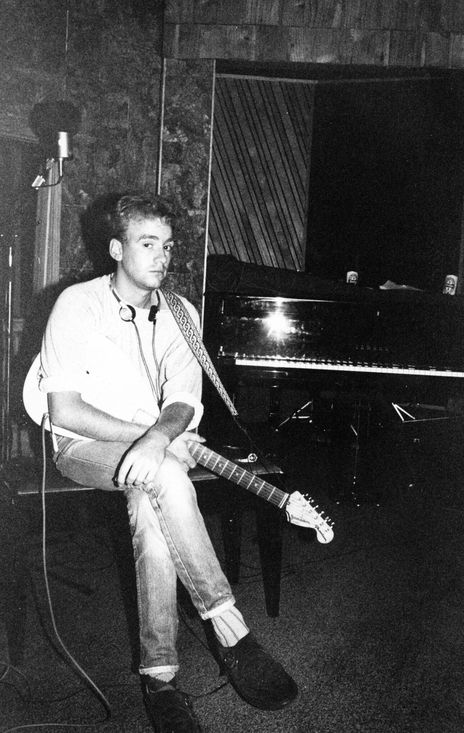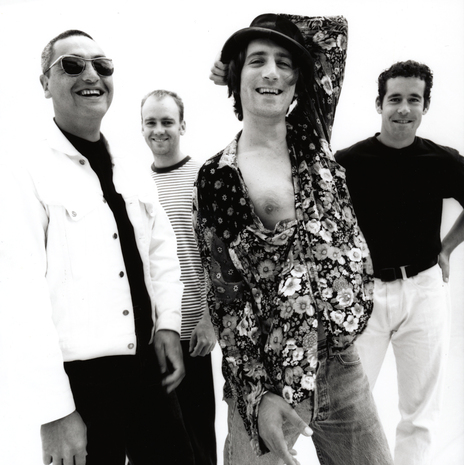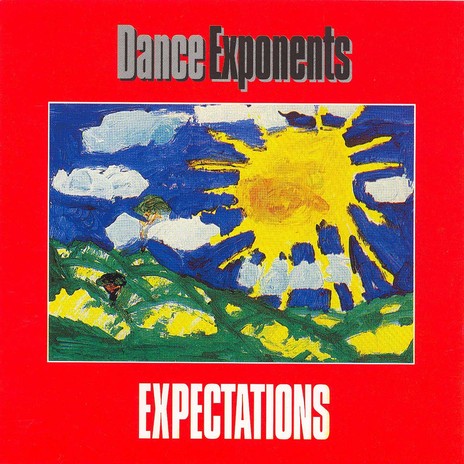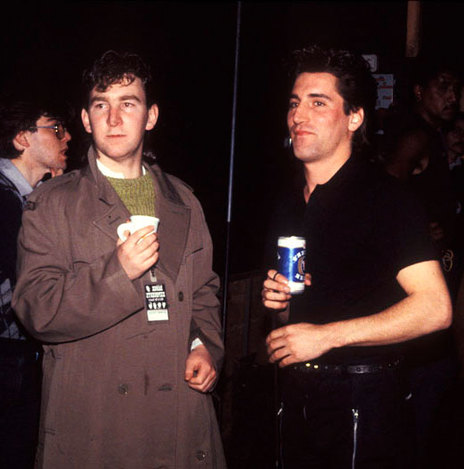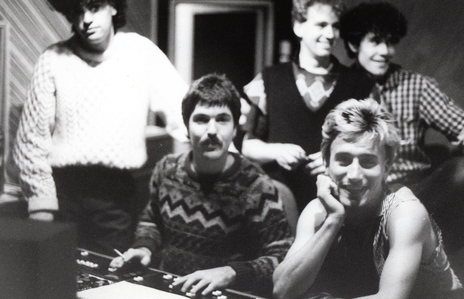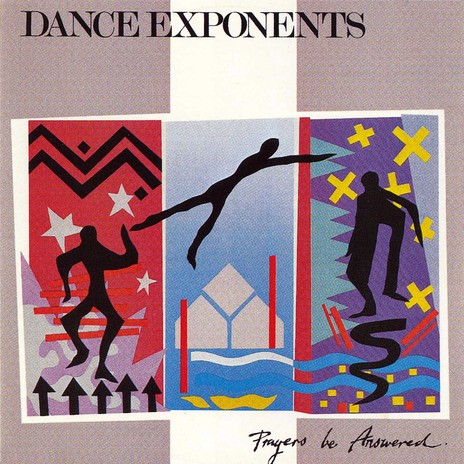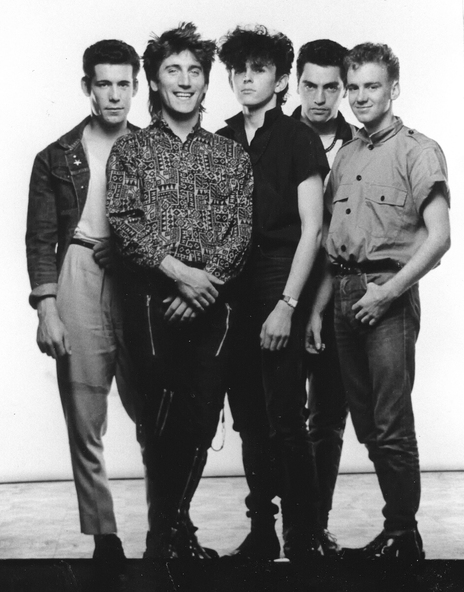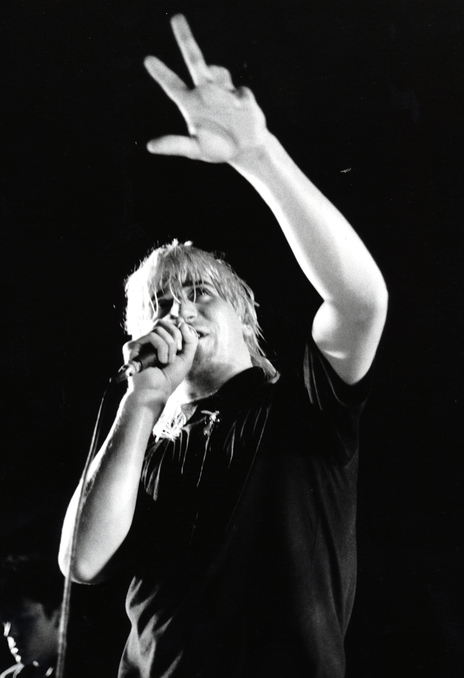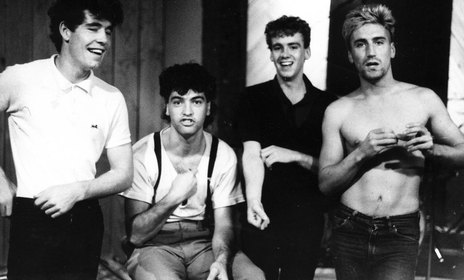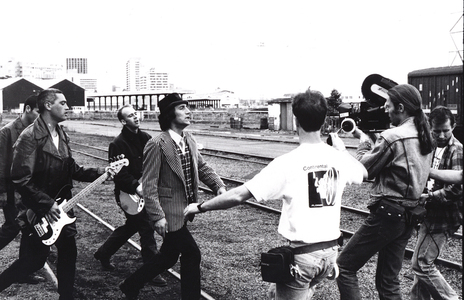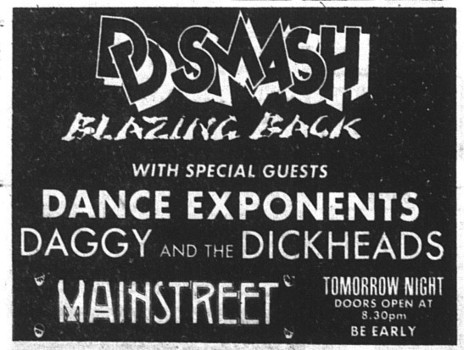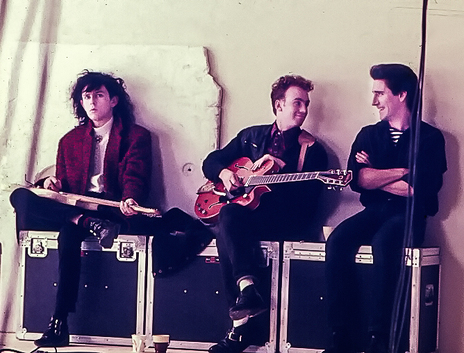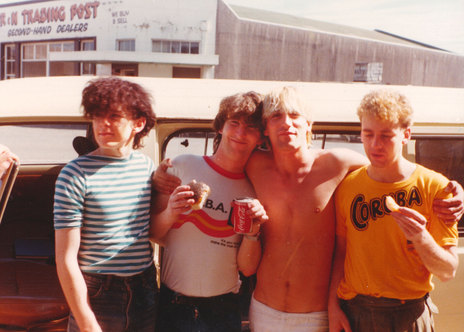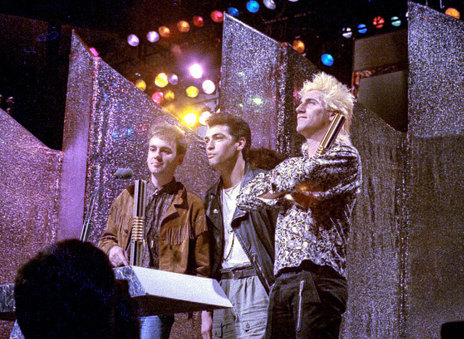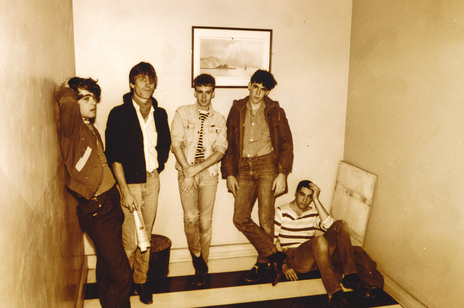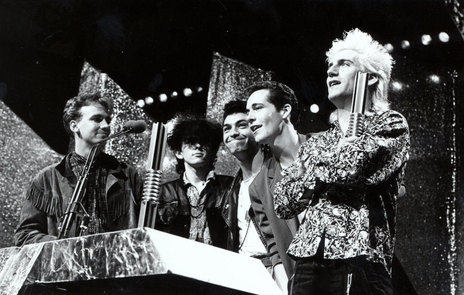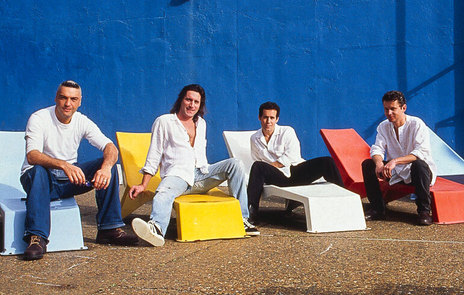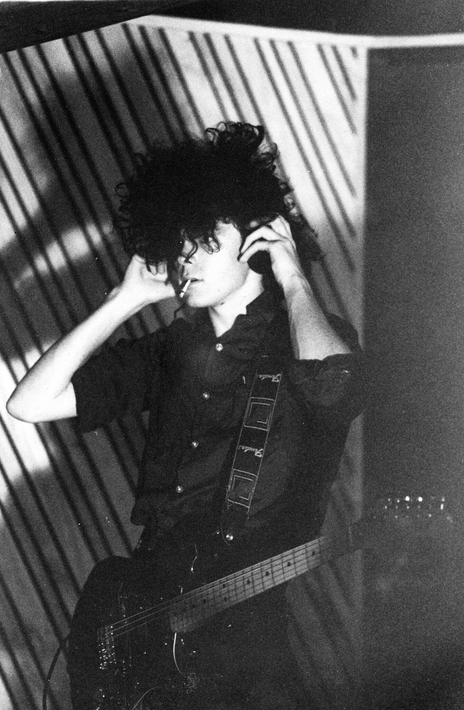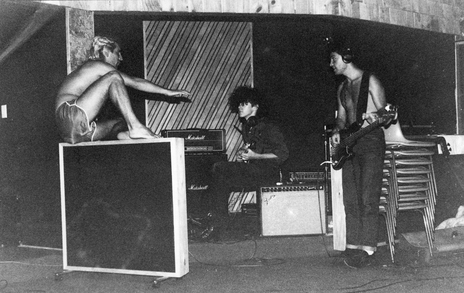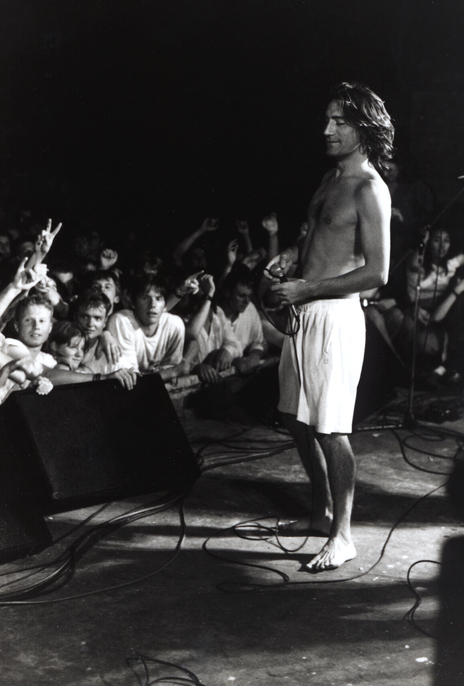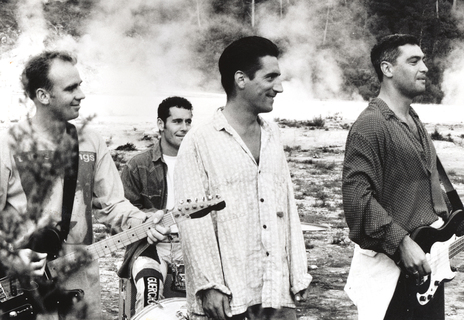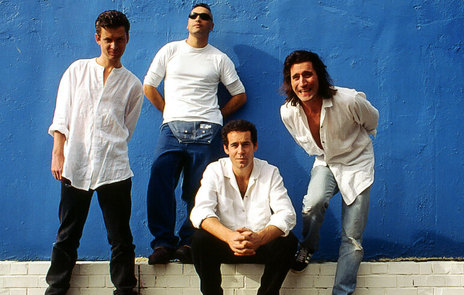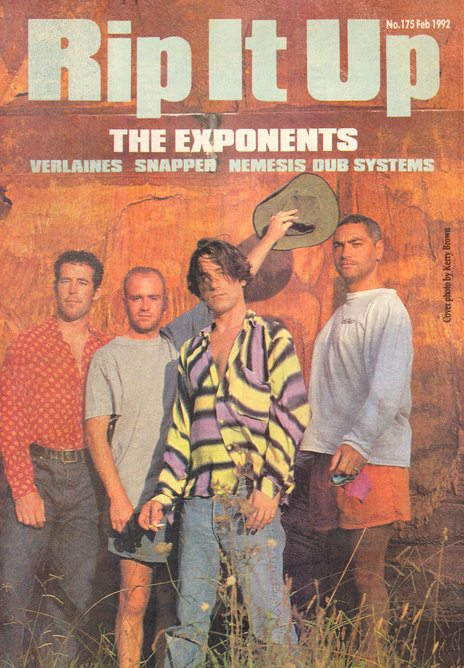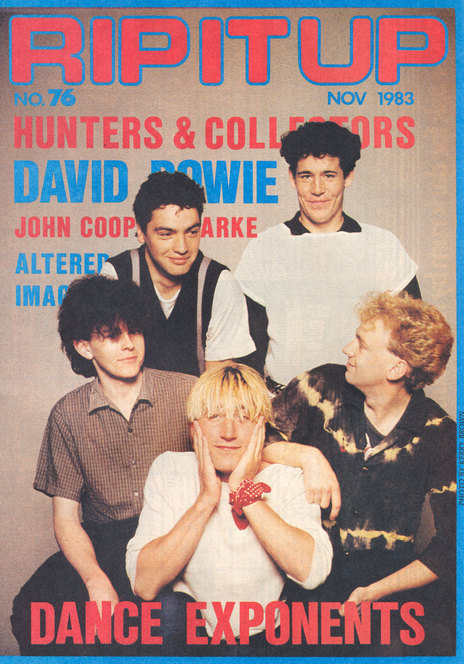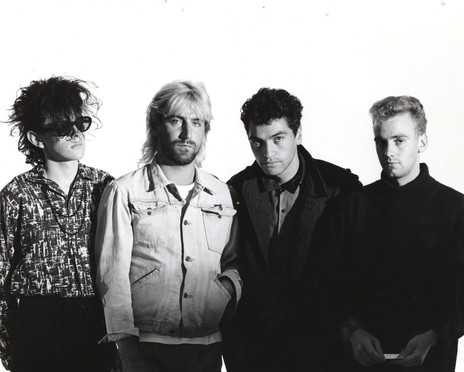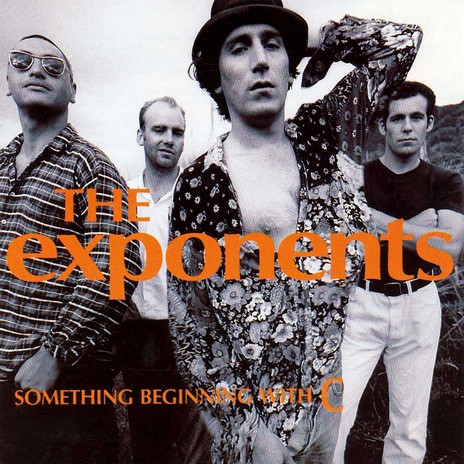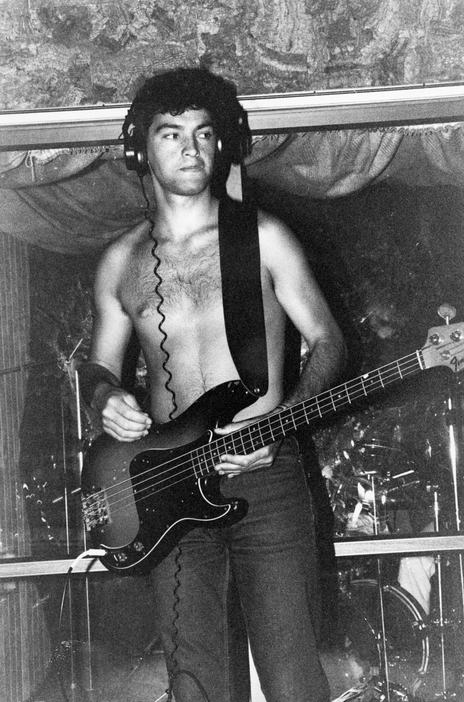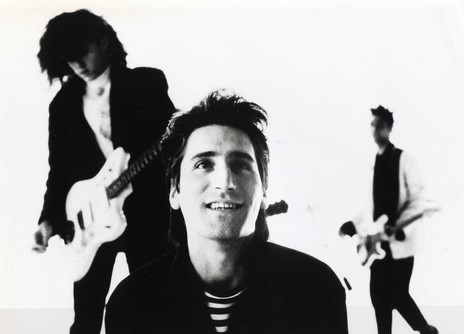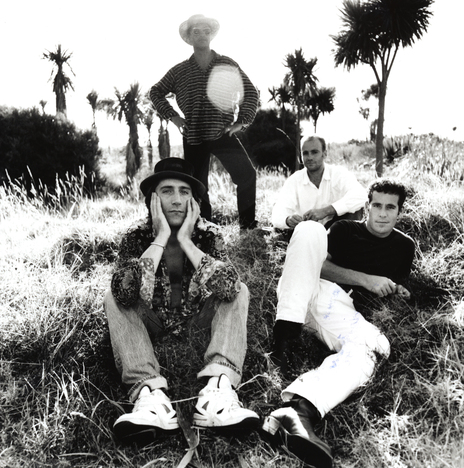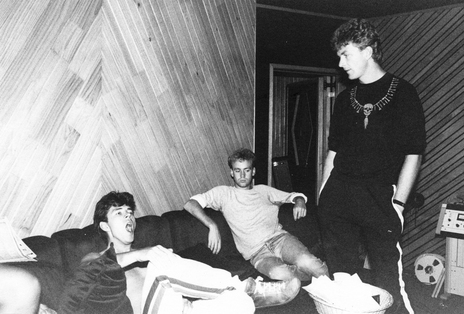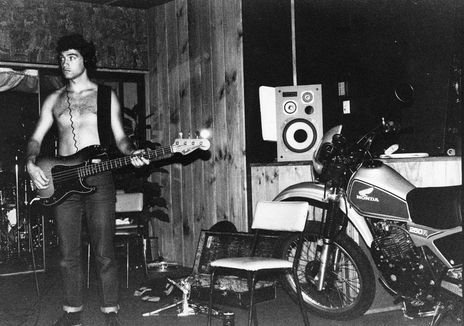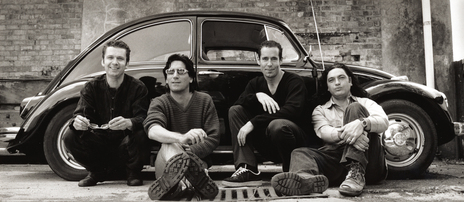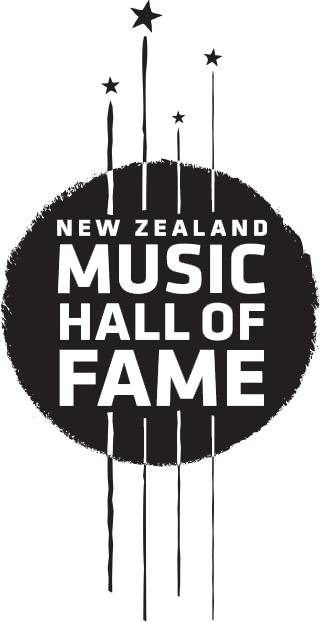And then there are The Exponents and their indefatigable songwriter, Jordan Luck, who have given New Zealanders the songs they love to sing.
In truth, Luck was born in Canada and grew up a little further north on State Highway One, in the small town of Geraldine. But Timaru was where his first band, Basement, formed and played their gigs. When Basement broke up in in 1981, Luck and his guitarist, British-born Brian Jones, headed up the highway to Christchurch, taking with them their friend Steve Cowan.
An ad placed for a drummer led them to Nelson kid Mike "Harry" Harallambi and his Oamaru-born friend, bass player Dave Gent. Cowan switched from bass to keyboards and the new five-piece – the Dance Exponents – debuted just a week later at Christchurch's Hillsborough Tavern.
In the early 1980s in Christchurch, the big pubs were often the only entertainment in town and the Dance Exponents' subsequent residency at the Aranui Tavern created a sensation. The new kids in town quickly became the talk of the town.
Their first single, 'Victoria', blended a real-life story of an abusive relationship with a chorus any reveller could (and did) sing along to.
The buzz made its way to former Split Enz member Mike Chunn, who had established a local branch of the Australian Mushroom Records label in Auckland. Chunn signed the band in 1982. Their first single, 'Victoria', blended a real-life story of an abusive relationship with a chorus any reveller could (and did) sing along to. It reached No.6 in the national charts – and became the only chart hit anywhere in the world to name check famous futurist Alvin Toffler.
Amid the exhilaration, Cowan announced that he was leaving the band and returning to Timaru (he was briefly replaced by Martin Morris). The second single, 'Airway Spies', reached No.11 and the band shifted to Auckland, where their 1983 debut album Prayers Be Answered was recorded at Mandrill Studio with Australian Dave Marett.
The album's sound had more to do with the chart radio conventions of the time than the buzzy power-pop of the band's own live shows, but it was a double-platinum hit that stayed in the local charts for a year after its December release. Earlier that same year, Live At Mainstreet, an album drawn from a televised show at Auckland's Mainstreet Cabaret (the Dance Exponents and Graham Brazier's Legionnaires had one side of the record each) peaked in the charts at No.3, one place better than Prayers. In November, the band supported David Bowie at Western Springs, playing to what is now regarded as the largest concert crowd in New Zealand history.
They settled in to Auckland, where they were welcome among the city's indie music crowd in a way that few, if any, of their pop-rock contemporaries were.
Yet a string of singles from the album failed to crack the Top 10 (one, 'Your Best Friend Loves Me Too', a crowd favourite for years afterwards, didn't chart at all). The arrival of second guitarist Chris Sheehan brought a different, darker sound to 'Sex and Agriculture', a stand-alone single produced by Australian Julian Mendelsohn.
The single was a success in New Zealand, but an attempt to take the new sound across the Tasman was frustrated by Australian immigration issues. The band's apparently unstoppable momentum faltered and it seemed in 1984 that their first album might be their last. But British producer Ian Taylor heard some demos sent to him by Mushroom and declared an interest in working with the band. With Taylor at the controls, the band began recording what would become the 1985 album Expectations at Auckland's Mandrill Studios.
By this time, Harallambi (in a decision the band later regarded as a mistake) had been ejected, and was replaced first by Christchurch sticksman Steve Birss, then, for the album, by Psychedelic Furs drummer Vince Ely. Eddie Olsen joined the band for live shows shortly after the release.
The third album, Amplifier, came about in 1986 as part of deals put together by Harlequin Studios owner Doug Rogers for release on his own Zulu label. It featured the single 'Caroline Skies' and re-recordings of 'Sex & Agriculture' and 'Only I Could Die (And Love You Still)'. After some tensions within the partnership – Zulu released the single 'Brand New Doll' without the band's approval – and after indifferent sales, the band relocated to Britain, without Olsen.
Like Kiwi acts before and after them, the Dance Exponents experienced the frustrations and the tantalising promise of being a band in London – working day jobs and looking for a record deal. But London was also where they discovered they'd become a part of their national culture in a way that transcended chart positions – and even whether they had a record deal at all.
It turned out that expats who'd seen the band at home wanted to see them on the other side of the world too. The expat circuit – not just Kiwis but Australians and South Africans – provided some handsome, if infrequent, paydays. Drummers Barry Blackler and Brendan Fitzgerald stepped in where they were needed.
Luck wrote new songs, the band recorded a demo tape and CBS showed interest in signing them. Legendary CBS A&R man Muff Winwood came to a show at the Fulham Greyhound, but the sound was messy and so was Luck. Deacon Blue got the record deal and the Dance Exponents were left hanging, again.
Their prayers were answered from an unlikely quarter in 1990. Adam Holt, who they'd met as the guitarist in Auckland's Sons in Jeopardy, was now working for PolyGram Records. He heard the London demos and proposed a contract to Jones, who had returned to New Zealand. His boss, Grenville Turner flew to London to reiterate the offer to Gent. The band (less Sheehan, who stayed in London and formed The Starlings) came back and reunited. Harralambi was welcomed back to the fold.
Then, in one of the bad decisions that bands can make (ask Shihad), the Dance Exponents changed their name to Amplifier.
Then, in one of the bad decisions that bands can make (ask Shihad), the Dance Exponents changed their name to Amplifier. Crowds for a national tour reflected the fact that no one knew who the hell they were. Their name was swiftly changed (almost) back to The Exponents.
As the expats had in London, local fans welcomed the band back as treasured old friends. Moreover, Luck had written a batch of new songs that would give the band the biggest hits of its career. The album Something Beginning With C topped the charts and eventually went five times platinum. Three singles 'Why Does Love Do This To Me?', 'Who Loves Who The Most?’ and 'Whatever Happened to Tracey?' went Top 10. (It was tempting to suppose that New Zealanders liked their pop songs framed as questions.)
1992 saw another crack at Australia, via a deal with PolyGram Australia, relocation to Sydney and the album Grassy Knoll, which featured contributions on guitar from Dave Dobbyn and Brent Williams. Harder and heavier to meet the needs of the Australian label (which had declined to even release Something Beginning With C), it came nowhere near matching the success of its predecessor. Like others before them, the Exponents experienced the hard edge of the Aussie music scene: As Gent put it in a 1994 interview with RipItUp, "You get a bit disillusioned driving nine hours to play a gig to 20 people. It gets you down a bit."
In 1994, Australian Dave Barraclough joined the band as a guitarist and songwriting partner for Luck – most notably on the single 'La La Lulu', which featured along with 'Summer You Never Meant' on the Warner Music compilation album Once Bitten, Twice Bitten – The Singles 1981-1995, which topped the charts and sold five times platinum.
Warner also released the 1996 one-off single 'Do You Feel In Love', but the band moved to Sony Music in 1997 for their sixth studio album, Better Never Than Late, which was produced by former Split Enz keyboardist Eddie Rayner with The Exponents. It peaked at No.3 but didn't stay in the charts long.
The Exponents' final album of the decade, 1999's, Hello, Love You, Goodbye, was an odd beast. Gent left the band and Steve Simpson stepped in on bass for the album's eight live tracks (from a show at the Poenamo Hotel in Takapuna) and six new studio songs. It peaked at a less-than-lofty No.48 and the band broke up, with Barraclough returning to Australia to join Mental As Anything.
Luck pulled together his own touring bands – first Luck the band, then the Jordan Luck Band – before the four original Exponents reformed in 2005 to record two new songs, 'Geraldine' and 'Or A Girl I Knew', for the Universal Music compilation Sex & Agriculture: The Very Best of the Exponents (again, Holt was instrumental in the release), which sold platinum.
Luck became the first songwriter to be inducted into the APRA NZ Music Hall of Fame in 2007 and the original Exponents reformed again in 2010 for the Band Together benefit concert for Christchurch earthquake victims. Christchurch was also the scene of a one-off show the next year to mark the band's 30th anniversary, along with another Universal release, Why Does Love Do This To Me: The Exponents' Great Hits.
2013 saw a flurry of activity. The Notable Pictures documentary The Exponents was screened on Prime TV in May and Universal digitally re-issued Live at Mainstreet, Amplifier, Prayers Be Answered, Expectations, Something Beginning With C and Grassy Knoll – the last four sweetened with rarities, B-sides and live recordings. A new album, Eight Days at Roundhead, captured in the documentary, saw them take on some of Luck's earliest songs for the band.
That stands as the last of many returns. But The Exponents and their songs had long since passed the point where they could ever really go away. They are locked in the memories of not only their original fans, but the offspring of those fans. It would hardly be a surprise to find three generations singing along.
For this writer, one night symbolises the place The Exponents have reached in the New Zealand psyche. On July 2, 2005, the British Lions played the second test match of their at Wellington's Westpac Stadium.
In the tradition of their home countries, the Lions fans were in lusty voice with terrace chants and songs, even as their team wilted in the face of perhaps the greatest All Black performance of the modern era. The New Zealanders in the crowd, always more reserved, tried to reciprocate by singing along to the Kiwi music hits served up by the stadium DJ. And then came 'Why Does Love Do This To Me?', the nation's most authentic terrace anthem.
The New Zealanders burst into voice as the chorus came. And the Lions fans, even though they'd never heard the song before, joined in. There could be no greater testament to that song – and to the man who wrote it and the band that played it – than the joyful noise they all made together that night.
Chris Sheehan passed away in December 2014 after a long illness.
In November, 2015 The (Dance) Exponents were inducted into the New Zealand Music Hall Of Fame.
